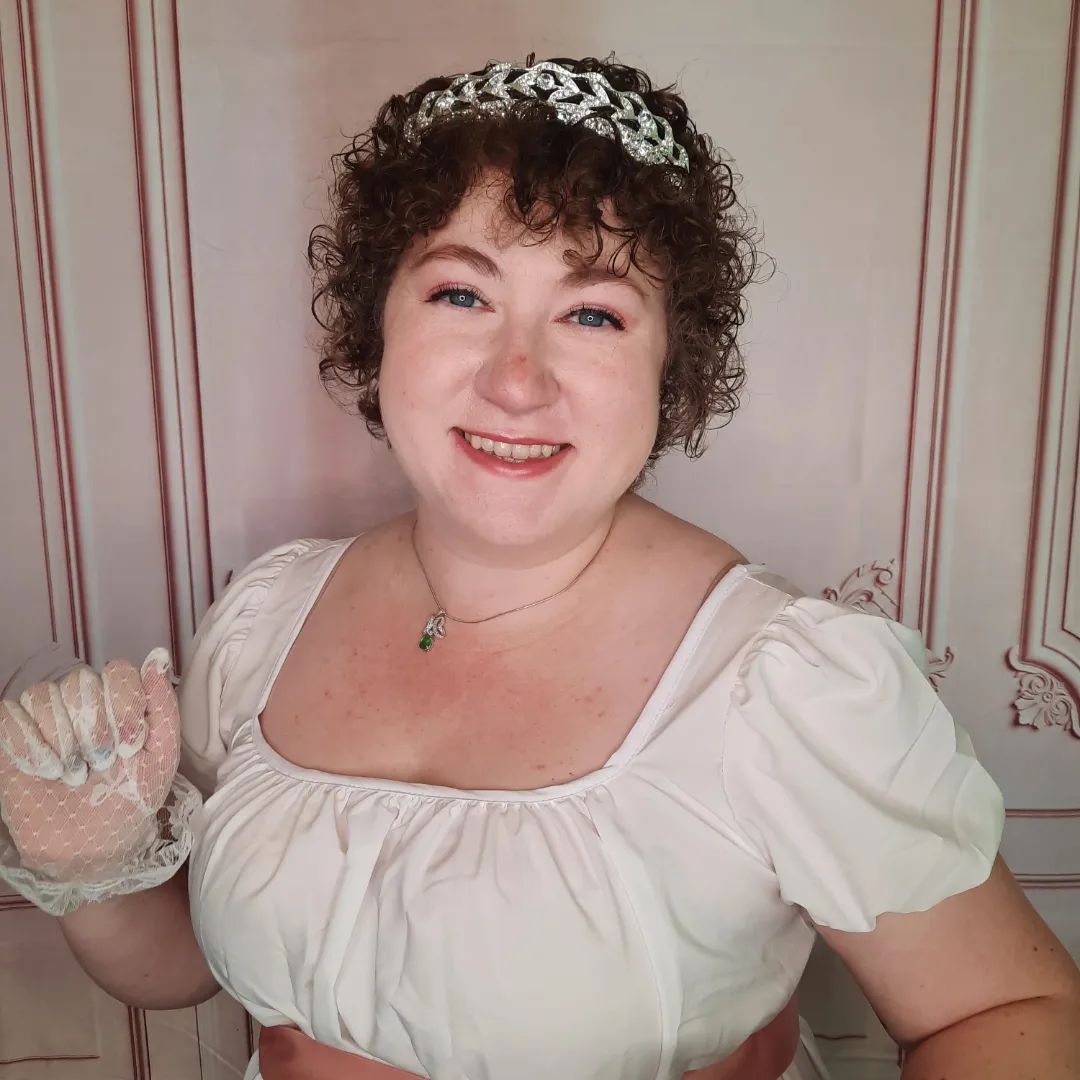By Taylor Raucher
I like to imagine love through the lens of a period drama. Sharing witty barbs with my love interest (who vexes me yet entices me), dancing closely at a ball, a leisurely stroll through the garden, a gentle kiss on the hand, a shocking and scandalous kiss on the mouth away from prying eyes, and a wedding at the end. Though it is sexless, it is romantic and intriguing and passionate.
Sadly, though, many period dramas are heterosexual. I don’t mind terribly, but as someone who is attracted to both feminine and masculine people, it’d be nice to see a little more representation, even if it seems “improbable”—because queer people have always existed. Living hidden lives in fear of discovery, but all in the name of love.
It was through a period piece that I discovered my bi-ness. Watching Keira Knightley in Pirates of the Caribbean was my awakening that girls were just as beautiful as boys—seeing her and Orlando Bloom together made my brain get all fuzzy and my stomach flip. I loved the drama and the romance and the swashbuckling, that the love between characters Elizabeth Swann and Will Turner was built on trust and adventure and sacrifice. There was passion and longing, culminating in a kiss near the ocean, simple but beautiful.
Being bi didn’t seem like a viable option for me, though. There was gay and there was straight. “Bi” was a joke; everyone knew that. It meant either a phase or a refusal to fully commit to coming out of the closet. I felt like I had to pick a side, gay or straight, and I went with the safest option: straight.
As I grew older, I still clung to these period dramas, and branched out into films from the 1930s and 1940s that featured romance that was believable but still rated PG. I didn’t often run into queer love stories—the first was probably Rocky Horror Picture Show—but I was still fortunate that I could secretly envision myself with either the hero or the heroine. As my friends started to gravitate toward more raunchy comedies and films with R-rated sex scenes, I just didn’t see the appeal.
As a teenager, I kept my bi attraction pretty well under wraps. I dated boys in high school and had quiet crushes on the girls around me, including friends. My senior year, I lost my virginity and just didn’t really “get” it. It was…fine. But then it was all my boyfriend wanted to do. I was so bored, and kind of annoyed. Where was the romance? Where was the yearning, the pining?
I finally came out as bi in college, which I don’t regret, but I do regret how it happened. I let it slip to one person, who told another, who told another, and by the evening nearly the entire tiny Catholic campus knew I was queer. But I refused to go back in the closet. I was seeing a girl from back home who made me feel whole and seen, and I was not going to let my classmates make me feel ashamed.
Being with a woman was like seeing sunshine for the first time after living in the shade. We were so similar, yet she taught me so much. I could finally embrace all parts of myself and feel complete. Our romance was short-lived but it was delicate and gentle, nothing more than kissing. It was like a real-life period drama: we tried to keep our love under wraps and away from our parents’ eyes, and we talked about art and literature and shared ideas and passions; and it was a connection of the mind as much as the heart. I was happy.
I dated a boy after, and he was nice, and we had a light-hearted romance at first that grew more passionate. But soon it was only physical with him. It exhausted me. I wanted to be seen as more than just my body. I wanted him to admire my mind, my intellect, and my passions; I wanted to be desired for my entirety. We burned out in an ugly manner, and I chose to be alone for a long, long time.
In my time alone, I reflected on what I wanted. I thought of the period dramas that I love so much and how the romances in them make me feel. I thought about how it was the intimate, sweet touches, the longing stares across the room, the words of passion and adoration—all of those things were what excited me. I actually quite liked that there weren’t any sex scenes.
And, in my reflection, I came upon the word “asexual.”
I stumbled over it at first, worried that it was too big and frightening for me to wear. I weighed how it would pair with being bi. And eventually I realized that it was okay for me to be more than one letter in the acronym. It was my truth and I wanted to embrace it. I desired romance and passion that was emotional, not physical, and it didn’t matter whether it came from a male- or female-presenting person.
I tend to gravitate toward the word “queer” as my identifier, because it is simpler and all-encompassing and doesn’t reveal , to those I’ve just met, more of myself than I want. But those I trust know that I contain multitudes, and that I am many-layered and complex, just like my love.
Taylor Raucher is a queer writer from Massachusetts, U.S. She has her MFA in Creative Nonfiction and is the proud mother of two cats.

